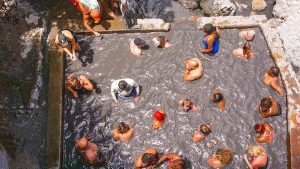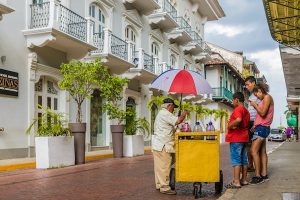
Emptied your pockets on world-class habanos cigars and Cuban añejo rum? Don’t fret, Havana still has plenty to offer you.
From stunning views to small, leafy gardens hidden in plain sight and underground bunkers dating back to the Cold War, these seven free things to do in Havana will make going gratis a breeze.
Get local insight on destinations all over the world with our weekly newsletter delivered to your inbox
1. Enjoy Havana’s best views at Estatua de Cristo
The Estatua de Cristo park is arguably the best place to take in knockout views of Cuba’s capital city. Cuban artist Jilma Madera created the 20m-tall sculpture of Jesus Christ by using 67 pieces of white marble from Carrara, Italy, and the statue sits on top of a 3m (10ft) pedestal.
The monument overlooks Havana Bay and a large part of the city thanks in part to its great location in Casablanca town, which sits 51m (167ft) above sea level and is aligned with the Catedral de la Habana across the bay.
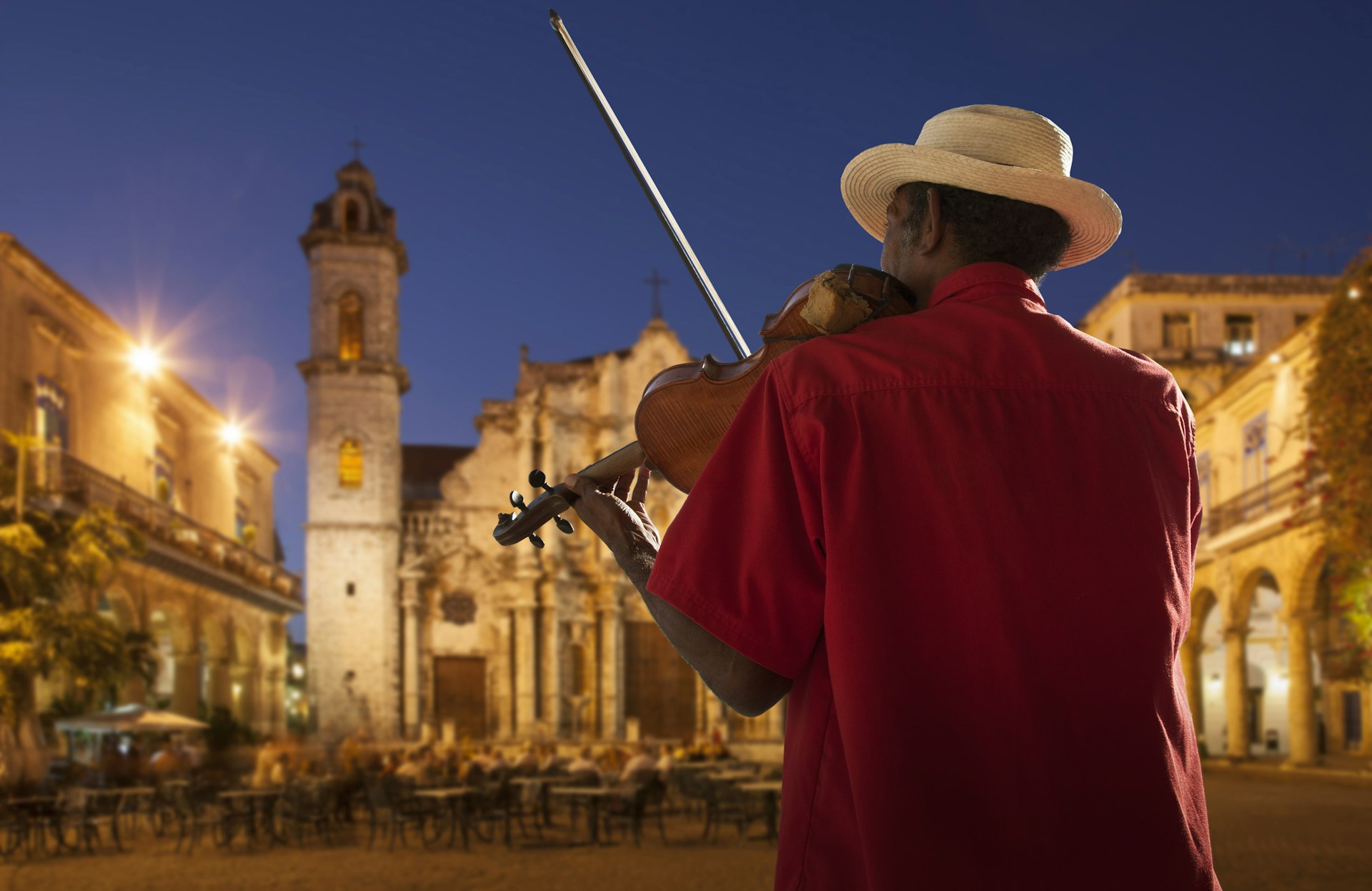 Experience the different personalities of Havana’s historic plazas © ac productions / Getty Images
Experience the different personalities of Havana’s historic plazas © ac productions / Getty Images
2. Go for baroque in five Old Havana colonial plazas
Take a DIY walking tour of the five most important colonial plazas around Old Havana. Each has a soul all its own. Plaza de Armas is a leafy oasis on a sunny day, while Plaza Vieja is known for its excellent array of restaurants and coffee shops. Plaza de la Catedral is home to Havana’s most impressive church (also free to visit). Don’t miss the artsy Callejón del Chorro nearby.
Breezy Plaza de San Francisco de Asís is closer to the bay and a favorite spot for pigeons. Plaza del Cristo – overlooked for decades until Havana’s up-and-coming gastronomic scene took over – is now the trendiest and liveliest nightspot for locals.
3. Visit unusual museums in Calle Mercaderes
Calle Mercaderes (Merchant’s Street) feels like a time warp to Havana’s past, with workshops, street vendors and trade shops interspersed with small museums housed in colonial mansions.
For free, you can visit Casa de Asia, a small museum celebrating Cuba’s ties with Asian culture; Casa Museo de Simón Bolívar, which highlights the life of Latin America’s liberator; Museo Casa de Osvaldo Guaysamín, housed in the former studio of the famous Ecuadorian painter; Museo Armería 9 de Abril, a small expo of historic weapons; and Museo del Tabaco, which showcases an often overlooked collection of Havana-related relics.
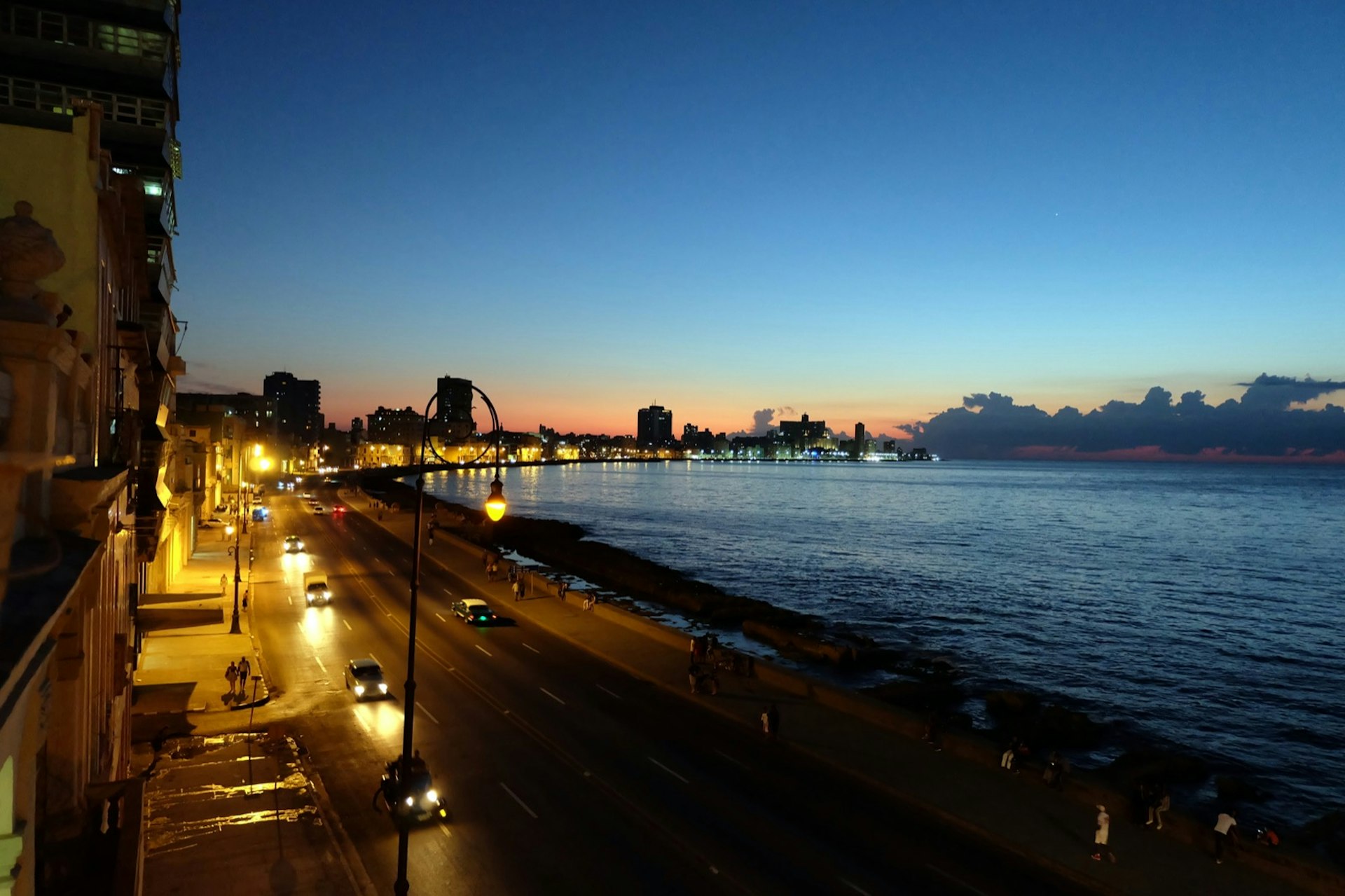 Enjoying a sunset at the malecón seaside promenade is the ultimate Havana experience © Diana Rita Cabrera / Lonely Planet
Enjoying a sunset at the malecón seaside promenade is the ultimate Havana experience © Diana Rita Cabrera / Lonely Planet
4. Unwind at the seaside malecón
A quintessential Havana experience, strolling along the malecón as the sun sets is a unique opportunity to witness the liveliest part of the city.
Stay here for a couple of hours and catch a glimpse of Cuba all in one place: young sweethearts hand in hand, street musicians playing traditional Cuban hits, youngsters blasting reggaeton on portable speakers – you get a little bit of everything by just walking (or sitting) and people watching.
Planning tip: When the waves get high, the road is often closed to traffic – a perfect opportunity to stroll down the middle of the street if you don’t mind getting wet along the way!
 Fusterlandia is a creative community full of whimsical art © Mark Johnson / 500px
Fusterlandia is a creative community full of whimsical art © Mark Johnson / 500px
5. Soak up surreal street art at Fusterlandia
Havana’s art scene is nothing short of incredible, and much of it is free to view. Superseding the free galleries and coops of central Havana is Fusterlandia, an entire neighborhood given over to whimsical art.
Located in the fishing community of Jaimanitas, 16km (10 miles) west of the city center, this creative community project was the crazy conception of José Fuster, a champion of a folkloric artistic style known as “naïve art” and an ardent follower of Catalan architect Antoni Gaudí.
Fusterlandia evolved over 10 years, beginning in the 1990s, but it didn’t start receiving wider attention until the 2010s. To date, Fuster has decorated more than 80 houses in his once dowdy home neighborhood with a dazzling pastiche of mosaics, murals, sculptures and symbols. Aside from obvious nods to Gaudí and Picasso, the artist draws heavily on Cuban themes, from the Afro-Cuban Santería religion to flags and palm tree motifs. The overall impression is both surreal and transcendental.
You can wander the streets at will, starting at Fuster’s own house and workshop.
6. Ponder the life of “El Comandante” at Centro Fidel Castro Ruz
Opened in November 2021 on the fifth anniversary of Fidel Castro’s death, this small complex headquartered in an elegant Vedado villa and surrounded by a lush landscaped garden acts as a study center, library and museum cataloging the life and times of the former Cuban leader. Multimedia exhibits are interspersed with busts, personal effects, photos and film clips.
Despite its unwavering non-critical tone, the center tells Castro’s story in painstaking detail, from his pastoral childhood in Holguín to his incarnation as one of the most recognizable figures of the 20th century. Outside, the grounds and gardens are beautifully laid out with 190 species of plants, an artificial waterfall, and an amphitheater for presentations and performances.
Entrance is free, and guided tours are available. Most of the explanatory panels are in Spanish.
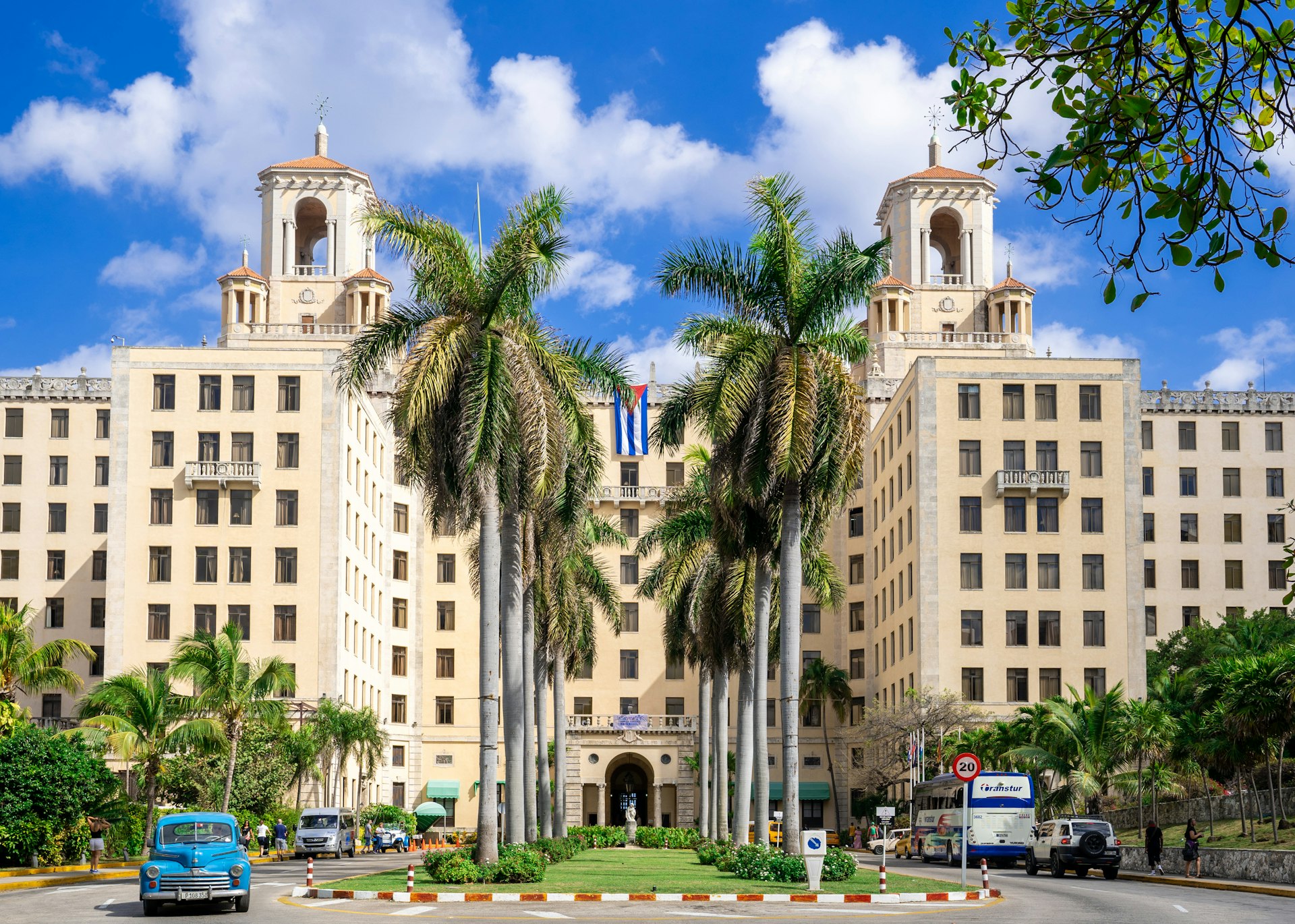 Explore underground tunnels below one of Havana’s most famous hotels © Joel Villanueva / Getty Images
Explore underground tunnels below one of Havana’s most famous hotels © Joel Villanueva / Getty Images
7. Tour underground bunkers below Hotel Nacional
Cuba’s grande dame, Hotel Nacional, is an art deco gem and a living catalog of famous guests and historic events. It was a favorite among American celebrities such as Ava Gardner and Frank Sinatra but also one of the headquarters during the Missile Crisis in 1962.
A free tour offers views of the bunkers below the hotel’s gardens and connects some sights toward the bay and a weapons warehouse. Stop by the lobby and ask for the more comprehensive free tour that takes you to some of the hotel’s famous halls.


